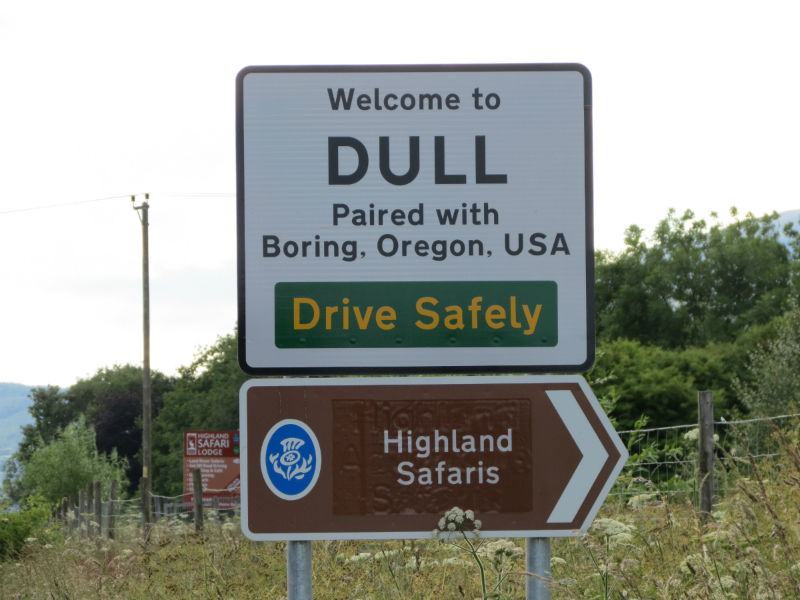 Are parents taking their children down the wrong road?
Are parents taking their children down the wrong road?
In preparation for a course on “Literacies” I’m teaching this semester, I spent the weekend going through some of my diaries for observations on literacy practices. I was particularly interested to look back at my notes from the early 2000s when I frequently visited library spaces designed for pre-school children. One surprising observation that stood out from those notes was the heavy use of baby wipes and hand sanitizers in those spaces.
For instance, in October 2004 I observed a mother sitting in the children’s section of a Sydney bookstore on a tiny children’s chair with a one-year-old on her lap. Mother and child had the display copy of a touch-and-feel book in front of them. The mother dragged the child’s hand over the textured item and repeatedly pronounced the adjective that went with the texture (“soft”, “rough”, “bumpy”). After each stroke, the mother wiped the baby’s hand with a wet wipe. I observed the activity for around ten minutes but it had begun before I arrived and still went on when I left. As the touch-and-feel book only had four or five pages, the activity seemed extremely tedious. The scene is still etched in my mind because of the mother’s serious dedication to this activity which, to me, seemed boring, contrived and ill-considered. I’ve never been a fan of touch-and-feel books because I don’t think they are a good way to experience texture and to hone the sense of touch; much richer experiences are available in “the real world”, both in the home and, even more so, in nature. To overlay books over nature in this way diminishes the joy of both.
This was not an isolated observation; and I have a fair number of records of dutiful but joyless interactions between carers and young children in the children’s sections of bookstores and public libraries. Many carers seemed to regard it as their duty to bring their young children to such spaces. Once there, they would go into “teacher-mode” and try and get their children to engage with books in a very narrow way resonant of formal teaching: usually making children look at a book while trying to get them to sit still on the adult’s lap or in a stroller. And wherever toddlers and preschoolers got to touch books, baby wipes and hand sanitizers never seemed far away. Did these adults think the literacy bug is a germ?
These observations provide evidence that a discourse about the importance of early reading for children’s schools success is readily available and imbues contemporary parenting. Many parents in the middle-class suburbs of my observations are evidently keen to set children on the path of reading and formal literacy learning from a very young age. But what will children actually learn from practices such as those described here? That reading is a matter of duty but also something dirty?
My – admittedly unsystematic – observations are not unique to Australian libraries, as a recent study in a public library in a small town in the UK demonstrates (Smith, 2017). There, the researcher found that the children’s section of the library was designed as an extension of a school space. Support for children’s school work was the key aim of the space, as the librarians explained and as was evident from the presence of reading scheme books, educational posters about the benefits of reading or workbooks.
Mothers dutifully seemed to bring their children to that library, too, but – maybe in a point of difference from the Sydney tiger mothers I described above – had little interest in engaging with children’s literacy practices themselves. Instead, they focused on their smartphones or chatted with other mums and left the children largely to their own devices. The children, perhaps unsurprisingly, preferred the toys available in the children’s corner over the books. Apparently, a favorite activity was to place books in a toy oven and to “cook the books”.
The idea that early literacy is beneficial to children and they need to be exposed to books as early as possible is now ubiquitous. In addition to librarians, teachers and parenting experts, the idea is also promoted by retailers: most supermarkets now sell all kinds of learning toys intended to promote early reading, school-readiness and “the joy of learning.”
The catch is that the activities I have described above and those examined by Helen Victoria Smith are not joyful. Having one’s little hand dragged over some random surface while hearing isolated vocabulary items and having the same hand wiped down every few seconds must seem more like a punishment than like fun.
What books do best is open up our imagination, they expand our minds and they allow us to travel across time and space. Above all, they allow us to see the world through someone else’s eyes. Are we making it harder for our children to discover the joy of books, the joy of reading and the joy of learning precisely by turning literacy practices into a utilitarian duty that is all about school-readiness and learning the alphabet?
This article was originally published by Language On The Move under a CC-BY licence


Rate and Review
Rate this article
Review this article
Log into OpenLearn to leave reviews and join in the conversation.
Article reviews